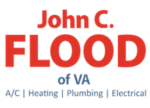Moving from one home to another is a monumental task with so many moving pieces. Once one to-do list is completed, another can easily begin. The key lies in preparation—preparing for the move, preparing to live out of boxes, preparing to be “on the road”, preparing to settle in to the new home. But haphazard completion of tasks can cause problems down the line. We’re providing the top reasons for an HVAC inspection in addition to your regular home inspection.
While you may not want to add this one more thing to the list, you run the risk of adding multiple things to your list that could have been prevented. If a thorough HVAC inspection isn’t on the calendar before you move into your new home, we urge you to reconsider.
The comfort of your new home is at stake
Getting comfortable in a new home is already a challenge for most families. It takes some getting used to when you’ve got a new bedroom, new rooms, new neighbors and a new view out of your kitchen window. But we’re not talking that kind of comfort—we’re talking physical comfort.
- If you’re moving in during the heat of summer or the cold of winter, your system cannot be on the fritz.
- If your new home has a heating system you’re unfamiliar with, you’ll want to brush up on how to run it effectively and efficiently.
- Problems with your HVAC system can lead to poor air quality in your new home. If you’re now living on a dirt road, or in a heavily wooded area, your family could struggle with poor air quality in the home.
- Things like mold growth within the existing HVAC system are hazardous to your family and drastically impact the air quality.
- It’s important to check both systems—not just the switch for A/C if you’re moving in the summer, or the heat if you’re moving in the winter.
The longer you wait, the more expensive the repairs can be
While we’d like to assure you that the homeowner before you conducted regular preventative HVAC maintenance, we know that’s not always the case. So if your existing HVAC equipment has some red flags, you can bet that they’ll worsen with time and can lead to a costly repair or full replacement.
A tune-up can make a world of difference
There are certain parts of an HVAC system that can be replaced, tuned up, cleaned or repaired to extend the longevity of your system. If you left them unattended though, they could require you to do a complete overhaul.
- Filters, coils, tubes, connections, drains, blower components, thermostat, and the area surrounding your HVAC units are all basic parts that can extend the longevity of your overall unit.
- By making these smaller tune-ups, you could extend the longevity of your entire system by an extra season or two.
Prioritize your tune-up schedule
Focus first on the season you’re currently in. If you’re moving in the middle of July, you can put off your furnace repair for a few months. You’ll want to prioritize based on a few things:
- Air quality. If there’s mold growth in your system or within the home, this is an immediate must-fix.
- Internal and external temperature. You can’t survive comfortably in a home that’s constantly 85 degrees or hotter.
- Air quality for allergies. If you’re noticing extra dust, dander, or debris, this should be fixed with an extra close look at your HVAC air filter.
What’s involved in an HVAC inspection?
The short answer: a much more detailed approach than your general home inspector will complete. While the basic functions of your HVAC systems are checked, some units can actually still function with major issues occurring beneath the surface.
What a home inspection doesn’t cover is HOW your equipment is performing. That inspection will tell you whether or not the equipment is performing at all, but not necessarily the effectiveness and efficiency a thorough HVAC inspection can identify.
Add an HVAC inspection to your list when buying a new house
There are certain things we just expect to work when we move into a new home. Like the lights, the roof, the plumbing and even the HVAC. Because someone lived there before us, right? So they must be in working order? Not always. By scheduling a thorough HVAC inspection in your new home, you can ensure its comfort and functionality. You’ll also be able to build a relationship with a trusted HVAC professional in your new hometown! Contact the HVAC, plumbing, and electrical professionals at John C. Flood by calling 703-214-5611!
